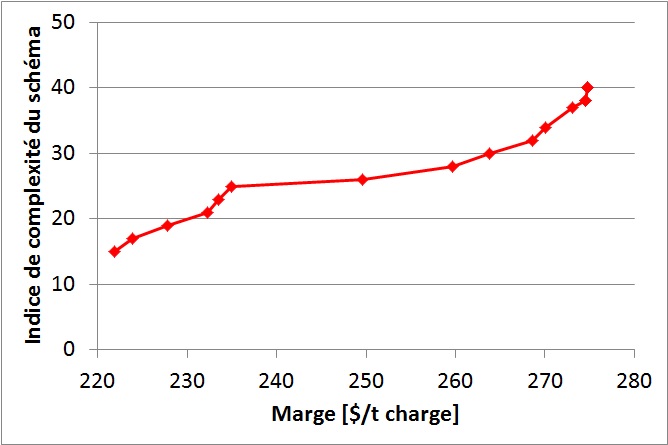In order to optimize the use of very expensive installations, the development of industrial processes needs to take into account integration between units, both for developments relating to mature subjects and as prerequisites for new subjects (bioproducts, petrochemical complexes).
Automatic synthesis - combining choice of technological building blocks, routing of flows between them and an optimization step - is a scientific approach that addresses these requirements. Having emerged as a concept in the 1970s, it has been difficult to develop due to the complexity of optimizations with decision making variables (binary). Optimization methods based on detailed modeling of the problem are very limited. In addition, reducing the complexity of the system, via the use of a global meta-modela only, very partially resolves the limitations induced by optimization methods with mixed variables.
IFPEN has adopted an approach using the most advanced MINLPb solvers that make it possible to take into account binary variables. The approach is based on breaking down the problem into blocks represented by simple meta-models(1). For conversion units, the challenge was to reduce the complexity of models while maintaining their representativeness. Furthermore, the separation of effluents was conceptualized taking into account cutting pointsc only, without considering energy(2).

This new approach enables the automatic synthesis and optimization of a set of processes, resulting in economic savings (figure) and opens up avenues
for intensifying process sequencing system studies. However, the treatment of separation in the tool remains cursory and the current focus is on better
incorporation of different types of separation units: liquid/liquid extraction, by solvent or simulated moving bed.
a - Neural network, kriging
b - Mixed Integer Non Linear Programming
c - Separation threshold of chemical compounds
(1) L. Mencarelli, A. Pagot, P. Duchene. Computers and Chemical Engineering, Dec. 2019.
(2) L. Mencarelli, A. Pagot. Escape30, Milan 24-27 mai 2020.
Scientific contact: alexandre.pagot@ifpen.fr





